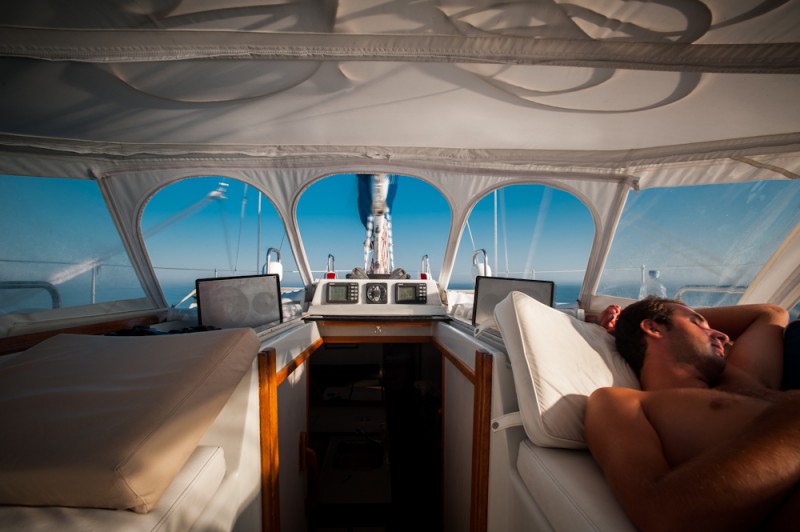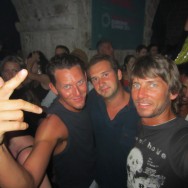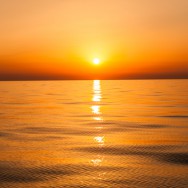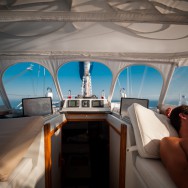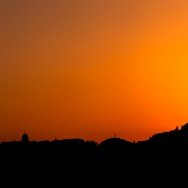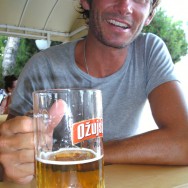We said goodbye to Uncle Bob on Friday in Dubrovnik and enjoyed our last Croatian sunset that night sipping Ozujsko (the local beer) from the boat. We’re now on the 30 hour passage back to Corfu and have the sails up in very fast conditions after a mostly windless night. We’ve been island hopping like madmen for two full weeks, so everybody needs a little recharging, so this passage is a welcomed change of pace.
On these long passages the boat mostly drives itself for hours at a time, so we get time to listen to music, read, and ponder things. Lately we’ve been asked a couple of times why we’re sailing around the world, or what is the “purpose” of the trip. It’s an irritating question because it seems so obvious why a person would be curious about the world and want to explore its far reaches. But why we have such an urge is difficult to describe, so we’ve ignored the questions until now. Last night I began reading a Carl Sagan book about space exploration, and his opening paragraph speaks to the issue of this human urge to explore. It describes our feelings better that we possibly could, so we’re borrowing his words… he says:
We were wanderers from the beginning. For 99.9 percent of the time since our species came to be, we were hunters and foragers, wanderers on the savannahs and the steppes. There were no border guards then, no customs officials. The frontier was everywhere. We were bounded only by the Earth and the ocean and the sky.
When the climate was congenial, though, when the food was plentiful, we were willing to stay put. Unadventurous. Overweight. Careless. In the last ten thousand years – an instant in our long history –we’ve abandoned the nomadic life. We’ve domesticated the plants and animals. Why chase the food when you can make it come to you?
For all its material advantages, the sedentary life has left us edgy, unfulfilled. Even after 400 generations in villages and cities, we haven’t forgotten. The open road still softly calls, like a nearly forgotten song of childhood. We invest far-off places with a certain romance. This appeal, I suspect, has been meticulously crafted by natural selection as an essential element in our survival. Long summers, mild winters, rich harvests, plentiful game – none of them lasts forever. It is beyond our powers to predict the future. Catastrophic events have a way of sneaking up on us, of catching us unaware. Your own life, or your band’s, or even your species’ might be owed to a restless few – drawn by a craving they can hardly articulate or understand, to undiscovered new land and new worlds.
– Carl Sagan, The Pale Blue Dot, Page 1
When we arrive in Corfu tomorrow morning we’ll meet up with our friends Bruce and Spyro (both very experienced sailors) for a few days of sailing with them and their friends. Then Piers and I will get off the boat and head to Hungary where we’re joining the Black Sea Run car rally as we did last summer. We’ll spend the next three weeks driving around the Balkans and into Eastern Europe exploring some of the places out here that aren’t reachable by boat. The open road softly calls
